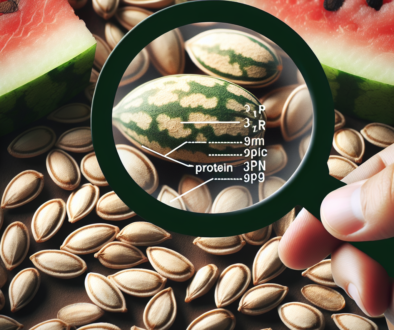2/3 Cup of Sugar Calories: Sweetness in Moderation
-
Table of Contents
- 2/3 Cup of Sugar Calories: Balancing Sweetness and Health
- Understanding Sugar and Its Caloric Content
- The Impact of Sugar on Health
- Strategies for Reducing Sugar Intake
- Alternatives to Sugar for Sweetness
- Case Studies: Success in Cutting Back on Sugar
- Statistics on Sugar Consumption and Health
- Conclusion: Embracing Sweetness in Moderation
- Discover ETprotein’s Protein Products
2/3 Cup of Sugar Calories: Balancing Sweetness and Health

When it comes to sweetening our favorite beverages and desserts, sugar is often the go-to ingredient. However, with increasing health concerns related to sugar consumption, it’s important to understand the caloric content of sugar and how to enjoy its sweetness in moderation. In this article, we’ll explore the calories in 2/3 cup of sugar and provide insights into managing sugar intake without sacrificing flavor.
Understanding Sugar and Its Caloric Content
Sugar, in its most common form as sucrose, is a simple carbohydrate that provides a quick source of energy. One teaspoon of granulated sugar contains about 16 calories. When we scale that up to 2/3 cup, which is equivalent to approximately 10.67 tablespoons, we’re looking at a total of around 640 calories. This caloric content can significantly impact your daily intake, especially if you’re not mindful of the sugar in other parts of your diet.
The Impact of Sugar on Health
Excessive sugar consumption has been linked to various health issues, including obesity, type 2 diabetes, heart disease, and dental problems. The American Heart Association recommends that women limit their added sugar intake to 6 teaspoons (about 100 calories) per day, and men to 9 teaspoons (about 150 calories) per day. With just 2/3 cup of sugar, you’re already exceeding these recommendations, highlighting the importance of moderation.
Strategies for Reducing Sugar Intake
- Read Labels: Pay attention to nutrition labels to identify hidden sugars in processed foods and beverages.
- Choose Natural Sweeteners: Opt for natural sweeteners like honey, maple syrup, or stevia, which can be used in smaller quantities.
- Reduce Portions: Cut back on the amount of sugar you add to recipes or your morning coffee.
- Enjoy Fruits: Satisfy your sweet tooth with fresh or dried fruits instead of sugary snacks.
Alternatives to Sugar for Sweetness
For those looking to reduce their sugar intake, there are several alternatives that can provide sweetness with fewer calories or a lower glycemic index. Artificial sweeteners like aspartame, sucralose, and saccharin are calorie-free options, while natural sweeteners like agave nectar and coconut sugar offer a different nutrient profile and a lower glycemic impact than regular sugar.
Case Studies: Success in Cutting Back on Sugar
Many individuals and organizations have successfully reduced sugar consumption through various initiatives. For example, a public health campaign in the UK led to a significant reduction in sugar levels in soft drinks. Additionally, personal success stories abound of people who have cut sugar from their diets and experienced weight loss, improved energy levels, and better overall health.
Statistics on Sugar Consumption and Health
According to the Centers for Disease Control and Prevention (CDC), from 2011-2014, the average American consumed about 17 teaspoons of added sugar per day. This is well above the recommended limits and contributes to the high rates of obesity and metabolic diseases in the United States.
Conclusion: Embracing Sweetness in Moderation
In conclusion, while sugar can add delicious sweetness to our lives, it’s essential to be aware of its caloric content and the potential health risks associated with overconsumption. By understanding that 2/3 cup of sugar contains approximately 640 calories, we can make more informed choices about our diets. Embracing moderation, exploring alternatives, and adopting strategies to reduce sugar intake can help us maintain a balanced and healthy lifestyle.
Discover ETprotein’s Protein Products
If you’re looking for ways to enhance your diet while keeping an eye on sugar intake, consider ETprotein’s range of protein products. Their high-quality plant proteins, such as organic rice protein and watermelon seed protein, offer a nutritious alternative to sugary snacks and can be a valuable addition to a balanced diet. Whether you’re a fitness enthusiast, someone looking to manage weight, or simply seeking healthier dietary options, ETprotein’s products provide the protein boost you need without the excess sugar.
About ETprotein:
ETprotein, a reputable watermelon seed protein Chinese factory manufacturer and supplier, is renowned for producing, stocking, exporting, and delivering the highest quality organic bulk vegan protein and plant proteins. They include Organic rice protein, clear rice protein, pea protein, clear pea protein, watermelon seed protein, pumpkin seed protein, sunflower seed protein, mung bean protein, peanut protein etc. Their offerings, characterized by a neutral taste, non-GMO, allergen-free attributes, cater to a diverse range of industries. They serve nutraceutical, pharmaceutical, cosmeceutical, veterinary, as well as food and beverage finished product distributors, traders, and manufacturers across Europe, USA, Canada, Australia, Thailand, Japan, Korea, Brazil, and Chile, among others.
ETprotein specialization includes exporting and delivering tailor-made protein powder and finished nutritional supplements. Their extensive product range covers sectors like Food and Beverage, Sports Nutrition, Weight Management, Dietary Supplements, Health and Wellness Products, and Infant Formula, ensuring comprehensive solutions to meet all your protein needs.
As a trusted company by leading global food and beverage brands and Fortune 500 companies, ETprotein reinforces China’s reputation in the global arena. For more information or to sample their products, please contact them and email sales(at)ETprotein.com today.














